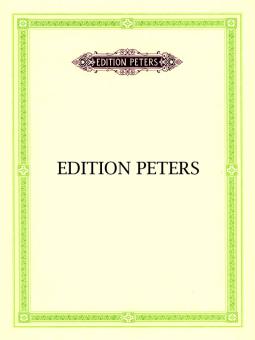Georges Bizet
Au Fond Du Temple
Duet from 'The Pearl Fishers' (Arrangement for Tenor, Baritone and Piano)
Georges Bizet
Au Fond Du Temple
Duet from 'The Pearl Fishers' (Arrangement for Tenor, Baritone and Piano)
- Compositor Georges Bizet
- Editor Roger Nichols
- Editorial Edition Peters
- Nº de pedido EP7588
plazo de entrega 1-3 días laborables
IVA incluido.,
Más gastos de envío
No disponible en todos los países. Leer más
Descripción de la:
The action takes place in Ceylon at an unspecified date. In Act I, set on a wild beach of the island, the pearlfishers choose Zurga as their new chieftain. His old friend Nadir the hunter appears after a long absence and in this duet, the two men recall their last journey together, to the Brahmin temple in Kandi where they had both fallen in love with the beautiful priestess Léïla, and how they had sworn never to seek her hand in case their oath of friendship should be endangered.
This edition prints both Bizet's own 1863 version of the duet and the later version of 1887-8, made by his publisher Choudens after the composer's death and based on no known autograph material.
While familiarity and the influence of available recordings will no doubt dispose some to choose the later version, it is worth noting a contemporary review of the original: 'there followed a duet for baritone and tenor which contains the finest inspiration in the opera, a kind of prayer, very nearly the work of a master, which was greeted with unamimous applause.'
Extract taken from the Preface by editor Roger Nichols
This edition prints both Bizet's own 1863 version of the duet and the later version of 1887-8, made by his publisher Choudens after the composer's death and based on no known autograph material.
While familiarity and the influence of available recordings will no doubt dispose some to choose the later version, it is worth noting a contemporary review of the original: 'there followed a duet for baritone and tenor which contains the finest inspiration in the opera, a kind of prayer, very nearly the work of a master, which was greeted with unamimous applause.'
Extract taken from the Preface by editor Roger Nichols

